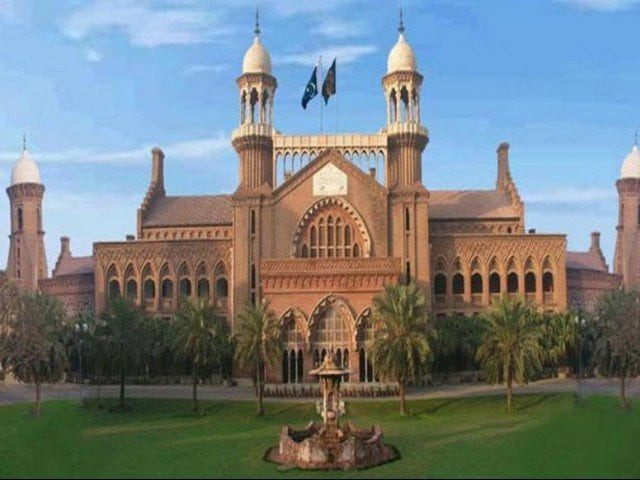LHC CJ irked by PM's aides crossing their domain
Warns advisers, SAPMs attending meetings to discuss issues of other depts will have ‘consequences

Lahore High Court Chief Justice Muhammad Qasim Khan on Wednesday expressed his displeasure over the prime minister’s advisers and special assistants attending meetings to discuss areas different than the sectors they represented.
The LHC CJ was hearing a matter where the appointment of 16 advisers and special assistants to Prime Minister Imran Khan had been challenged in court.
As the proceedings commenced, the representative of Nadeem Babar, who has recently stepped down from his post, said his client has tendered his resignation.
So the petition to the extent of his client be dismissed as infructuous, he added.
Deputy Attorney General Asad Bajwa told the judge that the affidavit of the premier's secretary had been submitted to the court.
The cabinet secretary, he added, was on a 15-day leave. The LHC CJ directed the cabinet secretary to submit his affidavit to the court.
After reading the PM secretary’s affidavit, the LHC CJ questioned as to whether or not an adviser, who belonged to a different sector, could attend a meeting called to discuss the matters of another department.
Further elaborating, the CJ remarked it was a normal practice that someone was called in a meeting for their advice on some technical issue but after they had given their opinion, they were requested to leave.
The LHC CJ made clear that “it will have its own consequences” if matters continued in such a way.
In earlier proceedings, Prime Minister Imran Khan submitting his reply to the court had stated that “the appointment to the position of a special assistant to the PM is the prerogative of the PM” and “advisers have been appointed under the Constitution while the special assistants were appointed under the Rules of Business 1973”.
The rules have been made, in exercise of the powers conferred under Articles 90 and 99 of the Constitution of Pakistan 1973, for the allocation and transaction of the federal government’s business.
“Therefore, any act done within its ambit would not be considered to be in conflict with the constitution.
It was also pointed out that while stipulating the term “Service of Pakistan” in Article 260 of the Constitution, the position of special assistants had been excluded from the definition of persons who would be deemed to be in the Service of Pakistan which showed that the office of a special assistant to the PM was not alien to the Constitution.
A petition was filed through advocate Nadeem Sarwar contending that respondents Abdul Hafeez Shaikh, Abdul Razak Dawood,
Amin Aslam, Dr Ishrat Hussain, Babar Awan, Muhammad Shehzad Arbab, Mirza Shahzad Akber, Syed Shehzad Qasim, Dr Zafar Mirza, Moeed Yusuf, Syed Zulifqar Bukhari, Nadeem Babar, Sania Nishtar and others had not been elected as members of National Assembly so they could not exercise authority and power of the ederal government which was the domain of elected representatives of the people.
The petitioner submitted that the perks and privileges enjoyed by the respondents were in violation of the fundamental rights of citizens of Pakistan and the appointment of dual nationals as special assistants and advisers was against the national interest and defence of the country.



















COMMENTS
Comments are moderated and generally will be posted if they are on-topic and not abusive.
For more information, please see our Comments FAQ